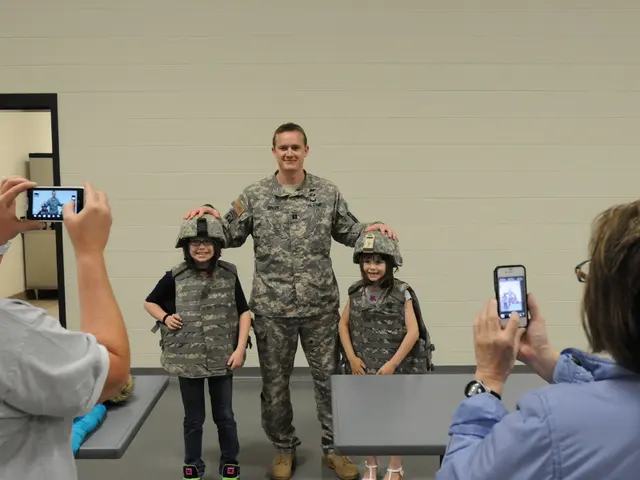Teachers Cry Foul Over Inclusion Limitations in Schools: A Northeastern Germany Perspective
Teachers express dissatisfaction due to insufficient staff for inclusion initiatives. - Overwhelming Feedback from Staff: Inadequate Personnel - Teachers Express Discontent
Hey there! Let's dive into the current education scenario in northeastern Germany, particularly Mecklenburg-Vorpommern and Brandenburg. The joint education of children with special needs is under fire, according to the Education and Training Union (VBE), due to insufficient physical and personnel conditions.
Based on a Forsa survey, which questioned 2,737 teachers nationwide, including 62 from Mecklenburg-Vorpommern and 91 from Brandenburg, two-thirds of teachers still consider the joint education of children with and without disabilities beneficial. However, 69% of them nationwide find it impractical under present circumstances. The main concerns are the lack of personnel, insufficient resources like classroom size or elevators, and large class sizes.
The VBE state chairman, Michael Blanck, emphasizes the need for dual staffing—a teacher and a special education teacher—in inclusive classes. He notes that currently, special education teachers are only available for a few hours a week or not at all, confirmed by 35% in the survey. Blanck suggests that teachers are left to manage inclusion on their own, necessitating more personnel. Additionally, he demands more emphasis on special education aspects during teacher training.
Education Minister Simone Oldenburg (Left) has acknowledged the need for more personnel resources and has extended the deadline for introducing inclusive offers at schools till July 31, 2030. As of now, there are 296 additional positions for inclusion at regular schools. Oldenburg also ensured continued support through separate learning groups and a network of support schools in the state.
Questions linger over the feasibility of inclusion everywhere. The CDU proposes strengthening the significance of parental will in inclusion, while the FDP calls on the government to examine the practicality of the inclusive claim. The AfD criticizes the gradual dissolution of special needs schools, advocating policy change. The Greens advocate for an inclusion summit, demanding maximum class sizes, more space, adjusted teacher workloads, and multiprofessional teams.
So, there you have it! Inclusion in German schools is a multi-faceted challenge, with concerns about personnel, resources, and support structures. Yet, there are feasible solutions on the horizon, including empowering teaching staff, community-based learning models, and targeted support for vulnerable groups. Ultimately, collaboration and sustained commitment among all stakeholders will be key.
Sources:
- University of Basel: Inclusive Education: An Intersectional Approach
- EU Monitoring Report on Education and Training 2019: Widening Educational Inequalities
- INCLUD-ED: Inclusive Schools
- IGLYO Inclusive Education Index: Protective Legislations for Marginalized Students
Teachers in northeastern Germany advocate for more emphasis on vocational training and education-and-self-development to address the challenges in inclusive education. Personal growth and learning would greatly benefit from vocational training that is tailored to the needs of teachers, enabling them to effectively manage diverse classrooms and foster an environment of mutual respect and growth in their students.
In order to achieve this goal, community policy should prioritize investment in dual staffing—a teacher and a special education teacher—in inclusive classes, ensuring sufficient personnel and resources for successful education and self-development of children with special needs. Furthermore, teacher training programs could be fine-tuned to emphasize special education aspects, ensuring that educators are equipped with the necessary skills to promote personal growth and learning for all students.







